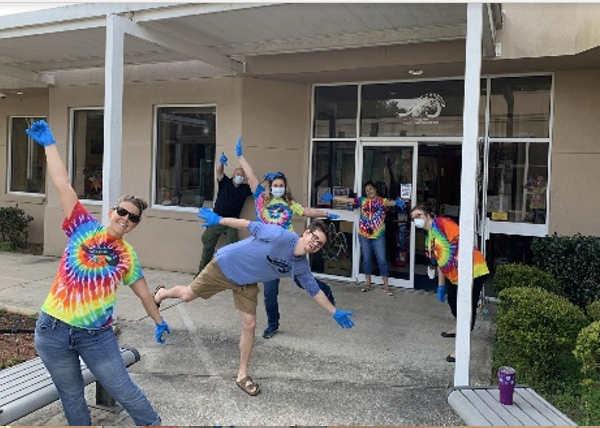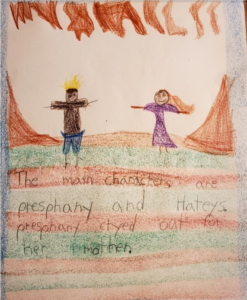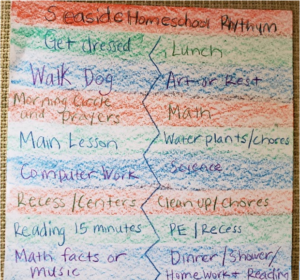
How does a school that places a premium on cultivating a child’s imagination continue to educate students when teacher and student can no longer meet face to face? And how can a school that encourages children and parents to be mindful of the time kids spend online make the switch to online learning now that brick-and-mortar schools are closed?
These were the challenges for administrators at Seaside School Consortium, a cluster of three charter schools in Jacksonville. The consortium was conceived in 2011 by a group of parents with a passion for the ideas embodied in Waldorf education. Nearly a decade later, the schools are the only public, tuition-free elementary schools in the Southeast inspired by Waldorf principles.
According to the Association of Waldorf Schools of North America, those principles evolved from an understanding of human development that address the needs of growing children. Rather than simply reading about and being tested on subjects such as music, dance, theater and literature, Waldorf educators help children experience them in ways that cultivate intellectual, emotional and physical capacities.
Quite a challenge for educators delivering instruction in a virtual world.
As soon as Seaside lead principal Rick Pinchot heard Duval County Schools would be closing, he put the word out to families at all three Seaside campuses – North, Beach and San Jose – that they could stop by and pick up the supplies their children would need to convert to online learning. Then Pinchot and Seaside board member Gina Zaffino attended a Zoom meeting hosted by the Alliance for Public Waldorf to learn how teachers could best work with students in a virtual setting.
Their most important takeaway: Teachers would need to connect with students in a way that would allow them to continue the face-to-face relationships they’d already established. Another key point: Students would need an online platform that would allow them to continue to interact in a group setting.

School leaders chose Google Classroom and decided teachers would be available from 8:30 a.m. to 4 p.m. to ensure working parents have access to them. They also pledged that parent emails sent in the evenings would receive a reply by the following day. Teachers began sending a list of tasks at the start of each day, including a “main lesson” – usually reading and English language arts – math, science and social studies. Resource teachers sent art and music lessons. Students completed assignments in their lesson books and emailed them to their teachers, who graded them and offered feedback.
To keep things as normal as possible, teachers were encouraged to schedule one-on-one video calls or meetings with students. A little over a week into the new world, things seem to be going well.
“I think parents are really involved and able to continue the Waldorf work in the home,” kindergarten teacher Briana Pollock said. “While it has been challenging, it has been rewarding to be able to work side by side with parents.”

The switch to online learning necessitated an adjustment for the parents as well as the students. Seaside administrators and teachers encouraged parents to create a daily rhythm to keep their children on a schedule – a “Seaside homeschool rhythm” – that itemizes everything from getting dressed in the morning to doing household chores.
“We have two very active young boys and we need a rigorous schedule to help with their energy,” said parent Natasha Dobronte, whose sons are in first and third grades.
Seaside San Jose principal Patty Oliphant said she’s confident her school is adhering to Waldorf principles despite the changes. Teachers continue to hold morning circle even if songs are sung via video. Lessons are still being sent to parents to incorporate into their home lives to keep Waldorf methods intact.
Oliphant congratulated families Friday with a virtual message.
“You made it through a whole week of this new ‘normal’ ” she wrote. “Keep what’s important in front of you. I love you all!”


